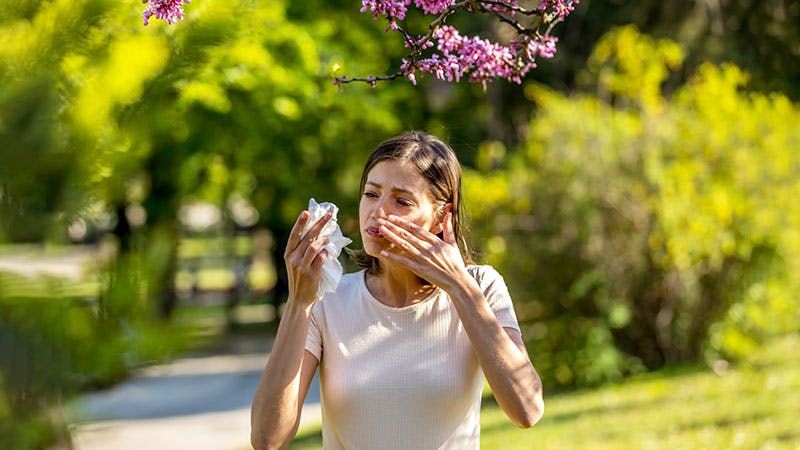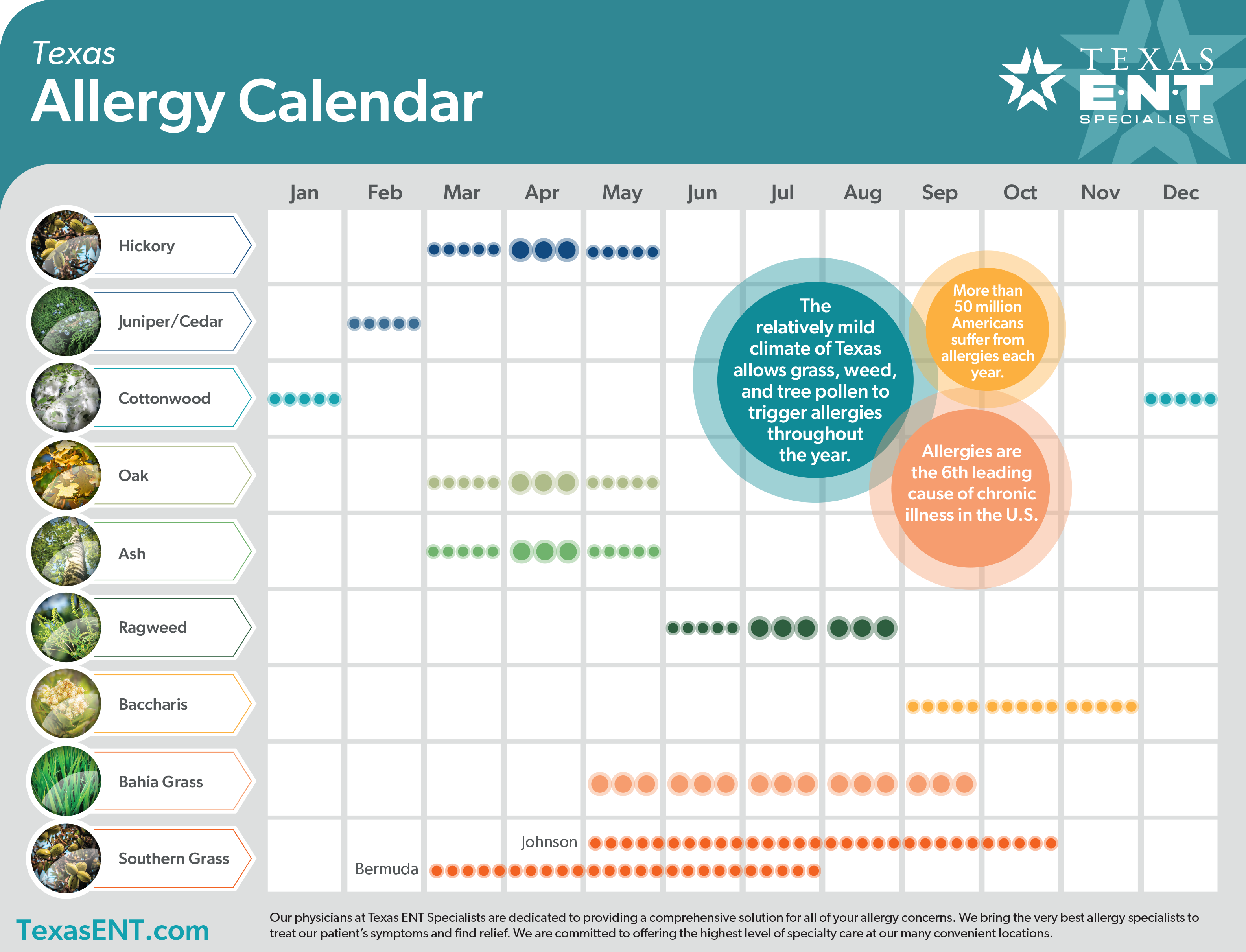
If you live in Texas, chances are you're no stranger to allergies. Texas is home to a wide variety of trees, grasses, and weeds that can trigger allergic reactions, leaving you with symptoms like sneezing, congestion, itchy eyes, and more. Dive in as we discuss some of the most common allergens in Texas and why you should seek treatment with one of Texas ENT Specialists.

Download your allergy calendar here!
1. Hickory: Hickory trees are common in Texas, particularly in the eastern and central parts of the state. Hickory pollen can trigger allergic reactions in some people, leading to symptoms like sneezing, coughing, and congestion.
2. Juniper/Cedar: Juniper and cedar trees are ubiquitous in Texas and can cause significant allergy symptoms. When these trees pollinate in the winter months, it can cause severe respiratory distress and trigger asthma.
3. Cottonwood: Cottonwood trees are common in Texas and release large amounts of pollen during the spring and summer months. Exposure to cottonwood pollen can cause allergic reactions, including itching, swelling, and respiratory symptoms.
4. Oak: Oak trees are abundant in Texas and are known for their beautiful, sprawling canopies. However, oak pollen is a potent allergen, and exposure can lead to symptoms such as sneezing, runny nose, and itchy eyes.
5. Ash: Ash trees are widespread in Texas and can produce significant amounts of pollen during the spring. Exposure to ash pollen can cause allergic reactions, including respiratory symptoms and skin irritation.
6. Ragweed: Ragweed is a common weed in Texas that can cause severe allergic reactions, particularly during the fall months. Ragweed pollen can cause symptoms such as sneezing, runny nose, and itchy eyes.
7. Baccharis: Baccharis, also known as "groundsel" or "ragwort," is a flowering shrub that grows abundantly in Texas. It releases pollen in the late summer and fall, making it a common allergen during those seasons. Contact with Baccharis pollen can cause allergy symptoms, including nasal congestion, itchy eyes, and skin irritation.
8. Bahia Grass: Bahia grass is a common warm-season grass found throughout Texas. It produces significant amounts of pollen, especially during the late spring and summer months. Exposure to Bahia grass pollen can trigger allergic reactions in susceptible individuals, leading to symptoms like sneezing, nasal congestion, and itchy throat.
9. Southern Grass: Southern grass is a collective term for various types of grasses commonly found in Texas. Exposure to southern grass pollen can trigger allergic reactions, leading to symptoms such as sneezing, runny nose, and itchy eyes.
If you're experiencing allergy symptoms in Texas, it's essential to seek treatment from an experienced allergy specialist. At Texas ENT Specialists, we have a team of highly trained and experienced allergy doctors who can help you manage your allergy symptoms and find relief. Our allergy testing services can help identify the specific allergens that are triggering your symptoms, and our allergy treatment options include immunotherapy, medications, and lifestyle changes.
Don't let allergies keep you from enjoying everything Texas has to offer. Contact Texas ENT Specialists today to schedule an appointment with one of our allergy specialists and start finding relief from your allergy symptoms.

